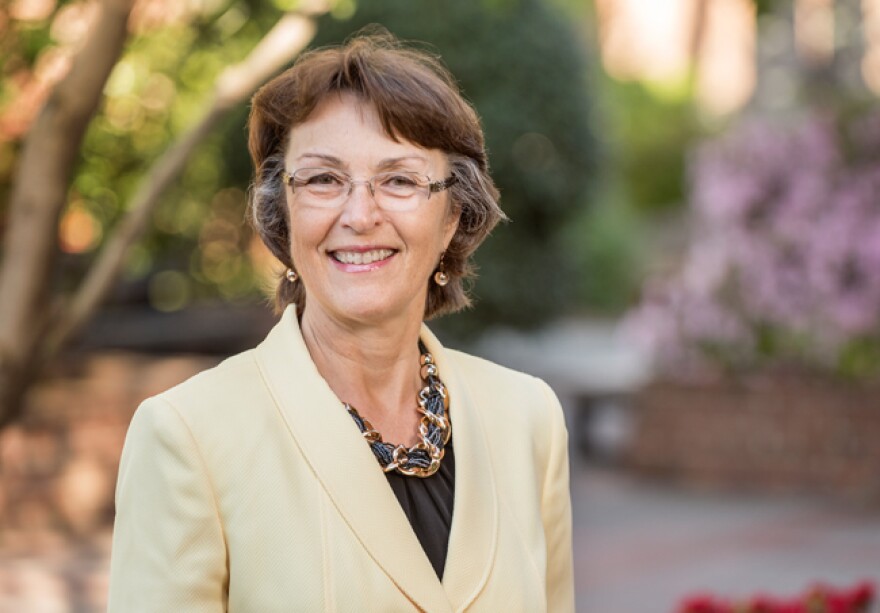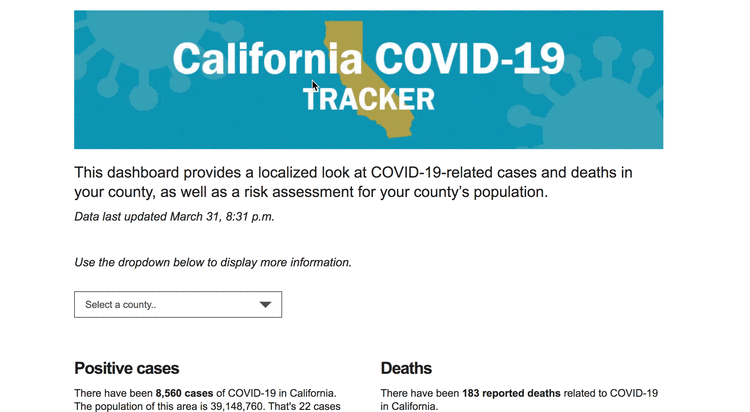Updated Wednesday, May 27, 4:37 p.m.
Earlier this month, California State University Chancellor Timothy White announced that the majority of CSU courses will be delivered virtually in the fall because of the coronavirus pandemic.
NSPR's Andre Byik recently spoke with Chico State President Gayle Hutchinson, about the Chico City Council's recent action to possibly explore the viability of bringing more students back to the campus than currently planned.
Here are highlights from their conversation. You can listen to the full interview at the top of the page.
Interview Highlights
On Chico State’s plans for the fall, and coordinating with the city
When the chancellor made his announcement on May 12, that the CSU will be predominantly online or virtual in the fall — predominantly means the vast majority — and the chancellor did say that we would have limited exceptions for in-person teaching, learning and research. And those limited exceptions really are dependent upon what's going on at each campus and each community where that campus resides. So in the case of Chico State, we've been working very hard over the last two months to try to determine what limited in-person exceptions to teaching, learning, and research we might have. And it turns out that we're just about completing a list where we will have up to 15% of our courses in person. And 15% of the number of courses that we offer is quite a bit. So there actually will be quite a bit of activity on the Chico State campus next fall. I don't think the City Council was aware of that when they had their conversation this week. And I also don't think they were aware that City Manager Mark Orme and I, we talk every other week and update each other on our planning.
There actually will be quite a bit of activity on the Chico State campus next fall.
I am happy to sit down with City Council or do a presentation for City Council, as soon as I have the detail on our planning, and I think that will allay a lot of fear and concern with regard to the economy. And I also welcome City Council and the city manager and his staff to sit down and plan more deliberately with the university. Mark Orme and I, like I said, have been keeping each other informed. And he knew that I would be bringing detail about our fall planning to him next week. And so now I have the opportunity not only to bring it to Mark next week, but to engage again, city staff and and certainly inform the City Council members.
So that said, when Chancellor White made his statement back on May 12, it was really with a clear understanding and a realization that much of what's going on in the state of California varies by community to community. There are some communities that are in a great degree of lockdown and other communities, not so much. It also aligns quite well with the governor's roadmap for reopening, which places the entire state right now in stage two, and I understand that Butte County was one of the first counties to receive permission from the governor to reopen as described by stage two. So knowing that we are aligned with our fall opening with the requirements of stage two, now that gives us an opportunity to, again, sit down and plan with a little more detail with the city. And that said, I think if the governor were to announce that we were moving into stage three, it certainly would provide Chico State with an option to lessen its restrictions as we move into the fall.
On how many students could return to campus for fall
Well, it's a very good question. And we're still working that out. So if I were to give you back of the envelope estimation, I think what we're talking about is around 500, maybe a little bit more, actual courses with small enrollment numbers being offered. And these limited in-person classes are really associated with that which is indispensable to the university's core mission, but also to a student's progress toward degree.
And we also have to make sure that we implement real rigorous standards for safety and welfare as we provide these courses for students. So it would be like nursing clinical, it would be selected labs, let's say in engineering. It would be selected labs, let's say in chemistry, biology, and certainly out on the farm. And I'm sure there are other courses listed that I know the division of Academic Affairs, the chairs, department chairs and deans are working on along with the provost. And I think that's important to note. So that's quite a few core sections and not courses. I should remind myself that it's course sections. Five hundred is quite a few, and that means that'll be an opportunity for hundreds of students to be on the campus.
And I will also say that one of our staff persons, Dan Herbert, he talks frequently with property owners in that one-mile radius around the campus itself, and property owners are feeling relatively confident that several thousand students will be returning to live in Chico, even though the vast majority of their courses will be online in the fall. So we do expect several thousand out of our 16,000 students to be in the area. And certainly we should have hundreds of people on campus in any given day. And with that initial planning, we'll see how restrictions go. If we stay in phase two, we will continue our course. But I certainly want to give the city an opportunity to see more detailed planning than what I'm telling you right now. And I'll have that information next week.
On potential COVID-19 case surges throughout the school year
So when we think about whether we expect a spike here or there, I think what we can expect is that as people in the state move around, we will see increases in cases. It's a matter of how quickly, or how many and how quickly, these cases emerge. And that's where we have to be ready, when they do emerge to make sure that we work with the county on contact tracing, that we have testing and treatments available, so that we can actually surround those who are coming down with it in a way quickly, and get them to self-monitor and self-isolate, and take care of themselves and get medical assistance if necessary. So that we can help mitigate again, the spread. Chico State, we're putting all those protocols into place. We align very closely with what the county and the city are doing. And if there is an increase or some sort of spike, we act to reduce that and suppress it as quickly as possible.
On the state’s $54 billion budget deficit and how that will impact Chico State
As the system takes a hit, that actually trickles down to Chico State and to the other campuses.
The CSU will take a hit. The monies that were requested as new money to the CSU for next year are simply off the table. And we do expect to see a reduction in our overall state appropriation. As the system takes a hit, that actually trickles down to Chico State and to the other campuses. So we do expect to see a reduction in our resources for next year. And what we're engaged in right now is planning how we mitigate that reduction, and preserve our high-quality education that we offer our students as they earn a prestigious degree from Chico State. And then we also are working to make sure that we work hard to keep all of our staff and faculty employed and working with us. So we're in the planning stages around that. ... We won't know impact to the budget probably until July.
On whether Chico State enrollment is expected to be down
Yes. Right now, we were estimating that we would be down a little bit. And because of that, we pushed our intend-to-enroll deadline out to June 1. And we're pushing the pedal to the metal as we speak, hoping that we can get as many students as possible to enroll in Chico State because being a Wildcat is where it's at. But yes, I do expect the enrollment to be down. As to how much I don't know, but I'll know after June 1.
On Chico State’s response to the pandemic
In terms of Chico State's response, I could not be more proud of our academic community, our faculty, staff and even our students have responded extremely well to this COVID-19 pandemic. And what I mean by that is when we received word back in early March that we needed to pivot our entire university into a virtual environment, faculty and staff did it in a matter of days.
For us, I think the announcement came out of the Chancellor's Office on March 11, March 13. Friday the 13th, was the Friday before spring break. We immediately canceled classes on that day and asked faculty to use it as a work day to begin making that transition of their courses that were in person to online in virtual. Over spring break our students, the majority of whom left the area, we were able to keep them out of the area and remaining home and hopefully safe. And when faculty returned after spring break, they had two more work days before all courses started up again on March 25. So the Herculean effort to really take an entire university and have it go virtual — hats off to the staff and faculty and students who made that happen.
On continuing to navigate through a global pandemic
And to the students out there, I say this: I know this is not what you wanted.
The other message I have is, you know, this is tough. It's tough on everyone. None of us expected a global pandemic. And this is a time where we really have to find our inner strength, that inner fortitude, if you will, that resilience that we know we have and also discipline, to persevere. And to the students out there, I say this: I know this is not what you wanted. It's a disappointment that we don't have everything in person. But I need you to stay engaged. It's not a time to pause your education. It's not a time to stop out. It's a time to lean in. It's time to learn how to engage virtually as well as ways to be safe, because your education is most important. And your education during this global pandemic and an economic downturn is especially important. As you prepare, earning the skills and knowledge you need to be those solution builders and problem solvers of the solution that California desperately needs as we begin to emerge from this entire situation.
This interview has been edited for brevity and clarity. Click the “play” button to listen to the entire interview.






